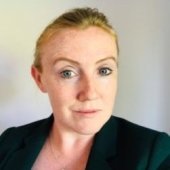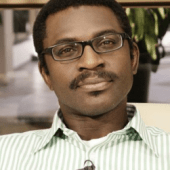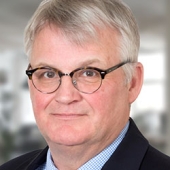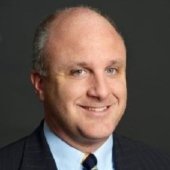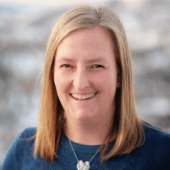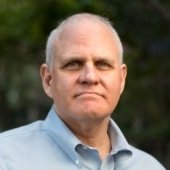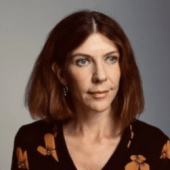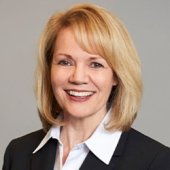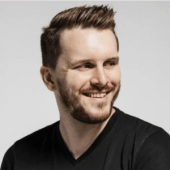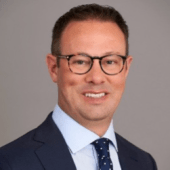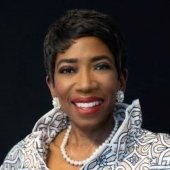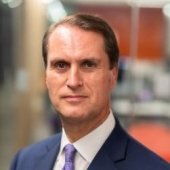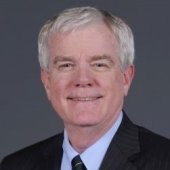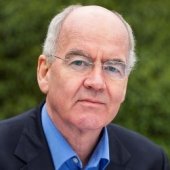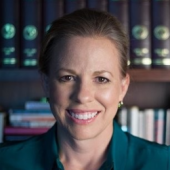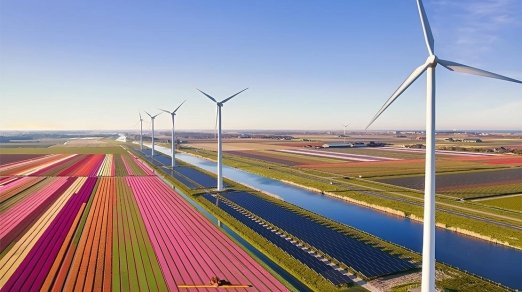IN BRIEF
- “Whenever there’s a reversal in the stock market, you’ll find out who are just the looky-loos, who are just the pretenders, and who are real players, and I think what we’re finding out now is who’s swimming with no pants.”
- “I think in 2035, companies that are committed to all three prongs, people, planet and profit, are going to continue to thrive.”
- “’Hey, if we move to Frankfurt, what would we have to change to be able to comply with EU regulations?’” and if it’s nothing, then you’re in a great position.”
In this VISION by Protiviti Interview, Protiviti Managing Director Steve Wang sits down with Paul Godfrey, the William and Roceil Low Professor of Business Strategy at the BYU Marriott School of Business. Godfrey’s latest book, Clean: Lessons from Ecolab’s Century of Positive Impact, lays out a path for companies to improve their social, environmental and business performance. Here, Wang and Godfrey discuss the strategy of sustainability and why companies can be committed to people, the planet and profit.
In this interview:
1:03 – The state of sustainability today
3:11 – Long-term trends
5:37 – What is a culture of sustainability?
8:07 – Creating multi-stakeholder value
11:04 – Navigating the regulatory field
BYU professor on keys to sustainability success: Get beyond the eighth-quarter mentality
Joe Kornik: Welcome to the VISION by Protiviti interview. I’m Joe Kornik, Editor-in-Chief of VISION by Protiviti, our global content resource examining big themes that will impact the C-suite and executive boardrooms worldwide. Today, we’re joined by Paul Godfrey, the William and Roceil Low Professor of Business Strategy at the BYU Marriot School of Business. His latest book is “Clean: Lessons from Ecolab's Century of Positive Impact” and it lays out a path for companies to improve their social, environmental, and business performance. Today, Paul will be speaking with my Protiviti colleague, Managing Director Steve Wang. Steve, I’ll turn over to you to begin.
Steve Wang: Thanks, Joe, and thanks, Paul, for joining us today.
Paul Godfrey: Happy to be here, Steve. Wonderful. Thanks.
Wang: So, Paul, with that, we live in an incredibly fast-moving world, specifically for our topic today, the world of sustainability continues to change each day. We read about severe weather, climate change, the change in landscape of social issues, emerging regulations, and the list just goes on. Let’s talk about the present first. What is the current state of sustainability both here in the United States and then in the rest of the world?
Godfrey: I think I’ll make two comments. One is, reports of the demise of sustainability are vastly overstated. If you look at, something like 95% or 90% of the Fortune 500 companies are solidly producing sustainability reports, they’re engaged in sustainability reporting. So, at least at that level where we’re keeping track of what we’re doing, it’s deeply embedded in a lot of organizations. In terms of the uncertainty that we’re seeing in the world, if you look at the popular media, we’re seeing this retreat from DE&I. We’re seeing what might be a retreat from sustainability. Current administration sort of wanting to pursue some policies that have worked very well in the past, and what I recall is a great quote by Warren Buffet who said, “When the tide goes out you’ll find out who’s swimming with no pants.” So, whenever there’s a reversal in the stock market, you’ll find out who are just the looky-loos, who are just the pretenders, and who are real players, and I think what we’re finding out now is who’s swimming with no pants. Who are the companies where their commitment to sustainability was popular, it was skin deep, it wasn’t very concerted. Those are the companies with no pants. They’re retreating for the beaches right now. I think there are a number of organizations out there that are deeply committed to sustainability, not just for its social value but for its business value, and those folks are going to continue to push forward the agenda, will learn more best practices and will continue to evolve in a very, very uncertain world.
Wang: Thanks for that. How about the future, let’s look out maybe 10 years or so?
Godfrey: Where we’re going to be in 2035? Well, let’s look at some long-term trends that you noted in your introduction. I have a client in Arkansas. I did some research for him about tornadoes and if you look over the 40-year time horizon, the number of tornadoes in the state of Arkansas continues to increase. The severity of tornadoes on average tends to go down but that doesn’t mean there aren’t awful tornadoes. It just means there are lots of little ones. So, in terms of climate, weather uncertainty, hurricanes, gale-force winds, these types of destructive events, we’re seeing more and more of those. That’s a secular trend. If you go back to 1980, you can see that climate.
If we look at some of the social issues that we’re facing, changes in our education system, introduction of new technology such as AI, the social scene is going to continue to be uncertain. We’ve still got human trafficking problems going on all around the world. We’re now reconfiguring supply chains. So, thinking about sustainability and how to build those for the long term, it’s just not going to go away. I think the trend—and I think, again, these are the folks who are swimming with pants the whole time—they tie sustainability to business outcomes. So, they’re looking at supply chain resilience not only from “Hey, let’s really help our partners in the Philippines,” but “Let’s be ready and aware when there are floods and mass storms in the Philippines that our supply chain doesn’t get disrupted,” that we’ve actually reduced operating risk.
So, why do we use sustainability issues that are customer-focused? Why do we create products that are sustainable revenue? Because it reduces customer churn risk. Because it not only grows revenue but it allows us to carve out an island of stability amongst the sea of uncertainty. So, I think in 2035, companies that are committed to all three prongs, people, planet and profit, are going to continue to thrive. If you have no pants on, you’re just doing it because there’s something popular about people and profit.
Wang: Thanks for sharing that. How about culture, how important is fostering a culture of sustainability within a modern organization? You have a bunch of different internal and external stakeholders that might have different expectations, so managing a culture can be extremely challenging. What strategies can leaders use to embed sustainability into their organizational culture?
Godfrey: Well, I think that the first thing is to realize sustainability is a journey, like almost anything else. Traditional risk management is a journey. Risks are constantly changing. The world is updating, best practices are updating. So, if you realize it’s a journey and realizing it’s got to be deeply embedded in your culture just as a natural realization, because if it’s a one-off commitment, if it’s a speech by the CEO but no follow-up, the journey isn’t going very far. However, when it’s gets embedded—so when I think about culture, I'm thinking about two things. One are the formal rewards that a culture reinforces, so, what do we pay people to do. One of the best-practice companies that I know of actually ties sustainability outcomes with the business unit level to managerial compensation. Part of their bonus is tied to hitting emissions goals, water use goals, the supply chain goals around sustainability. So, you got these formal things.
Then you got these informal things. Who are the heroes, what are the stories we really tell about our organization? Do we tell stories about just wasting, being profligate in the pursuit of customer value or do we reward stories about, “Hey, we were kind towards stakeholders. We actually took our customers and gave them a price break because our cost went down.” It’s what we reward, both formally and informally, that embeds sustainability in a culture, and again, it’s not going to happen tomorrow but it won’t happen unless you start tomorrow with some of these longer-term initiatives.
Wang: That’s a really good advice for the business leaders that are out there. Right now within our organizations, our sustainability leaders are also dealing with very complex issues and changing but increasing expectations. In some of your publications, you reference a tool called the Sustainability Canvas. Can you tell us a little bit about what that is and how can the Sustainability Canvas be adapted to fit the unique needs of modern organizations, especially with some of these leaders that are in rapidly changings industries?
Godfrey: The Sustainability Canvas basically builds from the premise that your company, or any company, competes in private economic markets. On the supply side, we have to buy materials, we have to hire employees. On the demand side, we have to create and sell products and services for our customers. We also compete in the public square. We all have, on one hand, regulatory, formal requirements that we have to meet, SEC regulations, EPA regulations, OSHA regulations. These are sort of formal regulatory bodies we have to comply with, but then we’ve also got our communities where we live, where our employees live, where our customers live, the schools, the music scene, the art scene, all kinds of how we build communities around. So, we got these four areas, costs, customers, compliance, and communities and the Sustainability Canvas is a way that companies can think about, one, how are we active in each one of those four areas, and number two, how are we creating value for our multiple stakeholders.
So, for example, how do shareholders win when we are focused on supply chain efficiency? Well, look, every gallon of fuel wasted is cost that went out the door that didn’t have to go out the door. Every gallon of water that we needlessly waste without recycling costs us money. So, in the sort of cost and efficiency focus, shareholders win because costs go down, operating risks tend to go down. How do employees win? Hey, look, we all like to work for winning companies. We all like to work for companies that show that they care about more than just the bottom line. If reducing energy use actually improves the bottom line, employees want to be involved in that kind of stuff. Think about customers, again, when we develop products, shareholders love new revenue. Customers love their needs are actually met by a product that we produce. Same goes for compliance where you’ve got activist risk, people who are looking to take potshots at your company because they don’t understand the full picture. The more transparently that you comply and report what you’re doing, the less ammunition those folks have to make your life miserable.
Wang: Let’s talk about everyone’s favorite topic and one that you just specifically referenced, the legal side of things. How should modern organizations navigate the evolving regulatory landscape related to sustainability?
Godfrey: So, in my field, strategy, there’s a guru, a guy with guru status named Michael Porter and he wrote a book about competing internationally, and his recommendation for companies there was counterintuitive. He said, “You want to find and compete in the toughest regulatory market that you can find because if you can compete in the hardest regulatory market, it’s easy to dial back your requirements for other markets that have less regulatory risk.” So, for example, now the EU is sort of at a moment of truth around sustainability where they’re figuring out that a lot of the stuff that they’re asking companies to do might be needlessly asking, adding costs to the company and its operations. But the EU has the strictest sustainability standards and so look at your operations and say, “Hey, if we move to Frankfurt, what would we have to change to be able to comply with EU regulations?” and if it’s nothing, then you’re in a great position. But then start to make those changes so that you’re prepared to compete in the toughest markets in the world because then when you get regulatory relief that’s a blessing. It’s not just saving you investments that you needed to make. Does that make sense?
Wang: Yes. It does make a lot of sense. This is where transparency from the business leaders to their employees is vital for organizations.
Godfrey: Absolutely. If folks in the C-suite are playing whack-a-mole on sustainability, people on the frontline figure that out pretty quickly, in spite of whatever get said or whatever emails get sent out, so that cultural consistency from top to bottom is absolutely vital.
Wang: Do you have any suggestions, advice or last second thoughts for our audience? What can we do as an individual or even as a society to help our organizations and community do what’s right?
Godfrey: I think there are two things. Number one, you got to get beyond an eighth-quarter mentality. You’ve got to be able to think about, “Okay. When I retire, what’s the world going to look like? What’s weather in Florida going to look like? What’s fire risk in California going to look like 10 or 20 years from now? How do you need to think about responding today to prepare ourselves for that world?” So, one is, you got to think much longer than eight quarters and the other one, this comes back to the culture. You have to be who you are. Don’t try to be somebody you’re not. Don’t try to be a company that buys into sustainability when it’s popular and then abandons when it’s not because then you’ll find you swim with no pants and that’s not a fun place to be.
Wang: Well, thanks, Paul, for all your insights, your inspiration, and as you mentioned today, just your overall mission to help others thrive.
Godfrey: Thank you and it is a great conversation. A really great conversation.
Wang: Thanks for that. So, with that, Joe, I turn it back over to you.
Kornik: Thanks, Steve and Paul, and thank you for watching the VISION by Protiviti interview. On behalf of Steve and Paul, I’m Joe Kornik. We’ll see you next time.
Paul Godfrey, the William and Roceil Low Professor of Business Strategy at the BYU Marriott School of Business, received the school’s Outstanding Faculty Member award in 2022. His latest book, Clean: Lessons from Ecolab’s Century of Positive Impact, lays out a path for every company to improve its social, environmental and business performance. The book has been recognized with a Nautilus Book Award and an Axiom Award.
Steve Wang is a Protiviti Managing Director with over two decades of experience in internal audit and sustainability reporting across different industries. Prior to joining Protiviti, Steve worked with two public accounting firms: Deloitte & Touche and Arthur Andersen. Prior to obtaining his Bachelor of Science in Finance from the University of Illinois, he had also worked three years in the retail industry.
Did you enjoy this content? For more like this, subscribe to the VISION by Protiviti newsletter.


